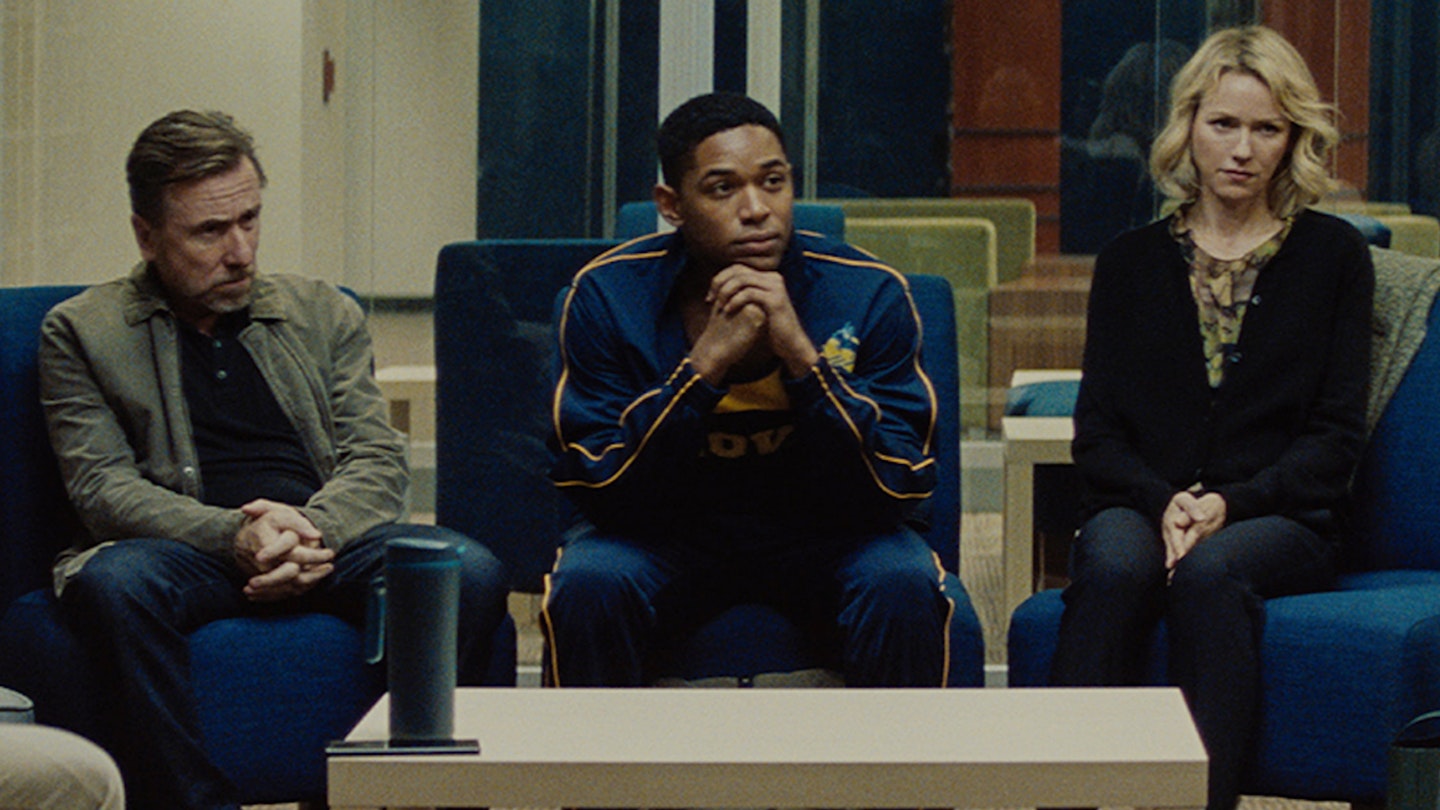Based on a play by JC Lee, Luce, Julius Onah’s third film as director, feels like one of split focus. On one hand it wants to say something about racial prejudice and conformity to the standards of a white establishment, but on the other, it relishes in the absurd twists and heightened tone of a camp revenge thriller, and feels constantly caught between these two modes.

Divisions are quickly drawn between Luce (Harrison Jr), his peers and his teachers, none fully understanding his experience as an immigrant. The most crucial divide is between Luce and his parents Amy (Naomi Watts) and Peter (Tim Roth), a barrier defined by their whiteness and their incapability to understand the difference between their social standings.
Kelvin Harrison Jr. puts in the film’s strongest performance, peeling back layers of performative friendliness.
The script, co-written by Onah and Lee, is often darkly funny, but sometimes unintentionally, such as the moment when Amy recoils upon discovering that Luce reads Frantz Fanon (gasp!). Onah covers a wide range of fascinating, hot-button issues - everything from institutional racism and mental healthcare to sexual assault and colourism - but more often than not these topics are discussed a little too vaguely.
As Luce, Kelvin Harrison Jr. puts in the film’s strongest performance, peeling back layers of performative friendliness to slowly reveal the anger underneath. He’s treated like a sacred cow by the school, leveraged for his story to fulfil the fantasy of people ‘pulling themselves up by the bootstraps’. The extent of Luce’s anger at his image starts out unclear, at first seems like petty disdain turns into something much deeper.
Even with extremely strong performances across the board, a lot of the dialogue feels overblown, the film becoming increasingly unhinged as it adds one twist after another, revealing the true (and frequently absurd) depths of Luce’s deception. But, as silly as it may get, there are genuine thrills to be found in these wild revelations.
